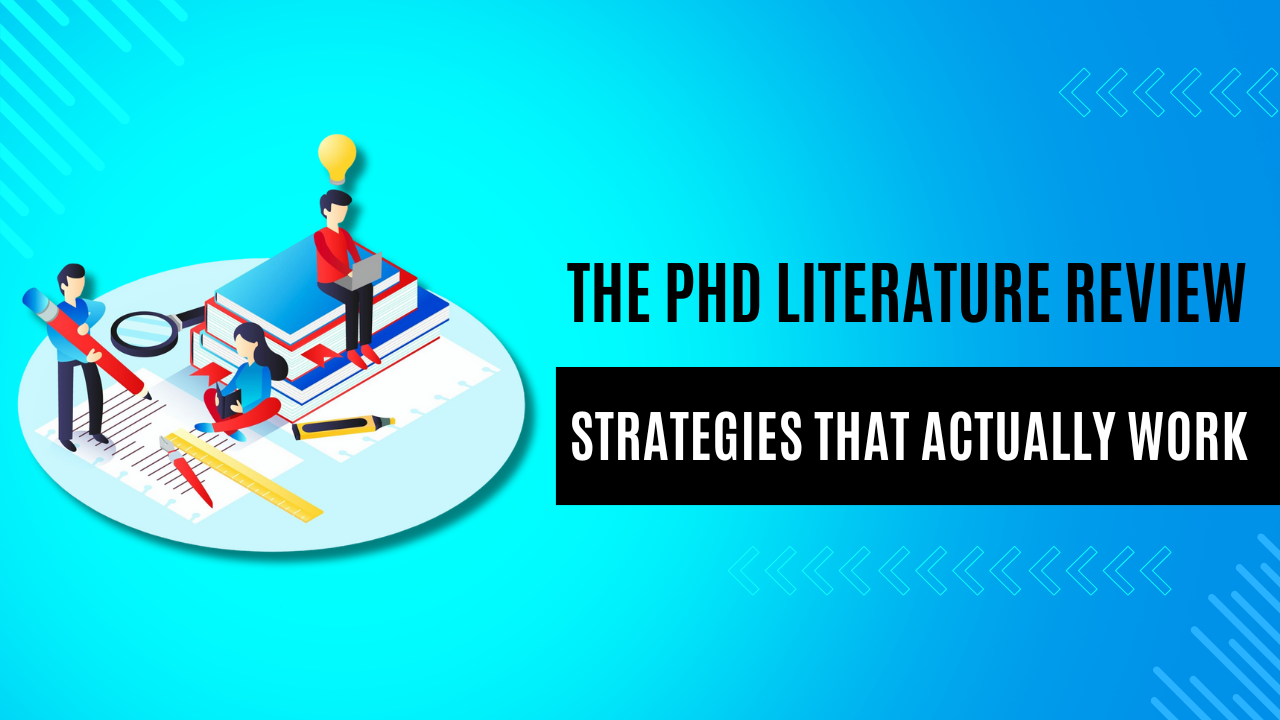02May
- Home
- The PhD Literature Review: Strategies That Actually Work
- PhD Research Updates
- The PhD Literature Review: Strategies That Actually Work

One of the most critical—and often dreaded—components of any PhD journey is the PhD Literature Review. It’s more than just summarizing existing research. A good PhD Literature Review sets the foundation for your thesis, identifies gaps in the field, and positions your research within a scholarly conversation.
But here’s the truth: most PhD scholars struggle with the literature review. It’s easy to feel overwhelmed, stuck, or unsure where to begin.
If that sounds familiar, don’t worry—you’re not alone. In this guide, we’ll share proven strategies that actually work to help you plan, write, and refine a literature review that is both comprehensive and impactful.

A literature review is a critical, analytical summary of existing research on a specific topic. Unlike a simple summary, a PhD literature review does the following:
This chapter is not just academic box-ticking—it’s a core part of your argument. Done right, it proves that you understand your field and that your research is both necessary and timely.
Many PhD students face these common issues:
Understanding these challenges is the first step to overcoming them.
Your research question should guide your entire literature review. It helps filter out irrelevant studies and focuses your attention on what matters.
Action Step: Write down your research question and use it to develop sub-themes for your review.
Example: If your topic is “AI in Healthcare,” your sub-themes might be:
A random Google search won’t cut it. You need a structured method for collecting literature.
Proven Tools:
Tips:
A literature matrix or review table helps you compare and contrast studies.
Columns to include:
This helps organize your notes and keeps your review focused and analytical.
Manually managing 100+ references is a recipe for disaster. Use software like:
These tools let you:
Don’t just read to understand—read to evaluate. Ask:
Pro Tip: Use the SQ3R method: Survey, Question, Read, Recite, Review.
You don’t need to read every paper on your topic. Focus on:
Your goal isn’t to include everything—it’s to include what matters.
Structure your review by theme, not chronologically or by author. This creates a logical flow and shows your ability to synthesize.
Example Thematic Structure:
Use topic sentences and transitions to maintain a smooth narrative.
Many students wait too long to write, thinking they need to read everything first. This leads to delays and frustration.
Better approach: Start writing summaries of articles as you read. Compile mini-reviews that can be expanded later.
When it’s time to write the actual literature review, you’ll already have most of the content.
Here’s what to avoid in your PhD literature review:
Listing articles without synthesis
Focusing only on recent studies without foundational context
Ignoring opposing views or limitations
Overuse of direct quotes
Poor referencing
Plagiarism (even unintentional)
Before finalizing your literature review, share it with:
They can spot gaps, inconsistencies, or unclear arguments that you might miss.
AI tools like ChatGPT, Elicit, and Scite can help you:
However, always verify the results manually. AI can complement your work, not replace scholarly rigor.
Your PhD Literature Review is not just a requirement—it’s a cornerstone of your thesis. When done well, the PhD Literature Review elevates your research and gives you credibility as a scholar.
By applying the strategies above, you’ll save time, reduce stress, and produce a literature review that truly supports your research goals.
Kenfra Research understands the challenges faced by PhD scholars and offers tailored solutions to support your academic goals. From topic selection to advanced plagiarism checking.
Before you graduate from college, possibilities are you will have to write at least one research paper of the college... read more

For PhD scholars looking to enhance their research projects with Python image processing, Python offers an invaluable toolkit. Image... read more
WhatsApp us
Leave a Reply